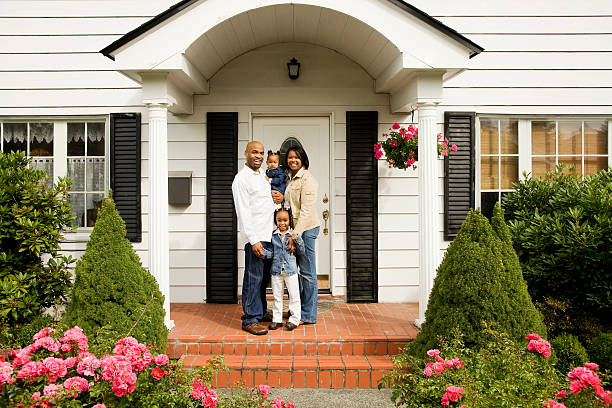
We have to be careful in society these days because they will have us believe that Black fathers aren’t present in homes, Black mothers are raising children alone, and Black boys and girls are growing up scarred from not having a full family to support them.
If you leave it up to everyone else they would have you believe the Black family is broken, poor and unstable. We cannot forget that this was a mental tactic used years ago during slavery to rip Black men and women from each other as well as their kids to break them into slavery. Despite how diligent they were to do this, did you know, instead of forgetting about them and moving on, many African Americans vowed to find their lost loved ones and, even before the end of slavery, saved money and made plans to find those they had lost and buy their freedom?!
America’s Legacy of Family Separation
Slave children were big business during the history of slavery in America and were known as property and property only. They were hired out to the highest bidder and were even loaned out to pay debts. Slave owners also gifted enslaved children to their white sons and daughters. Children knew that this could happen to them at any moment, too. Can you imagine being a child knowing that you could be taken away from your family and the only home you knew any day?
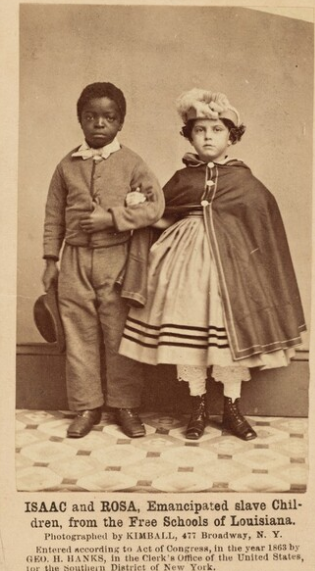
Today, Black children are separated by the bond and bail system, incarceration, the child welfare system, and the criminalization of poverty. There is an unusual system in America, a link between the excessive number of Black children in the foster care system and then from foster care to prison.
All of these American-made systems of power are the same systems of legal and social structures that polluted enslaved parents, and benefited from enslaved children during American slavery. We can even see this family separation today with Trumps quick action to separate families during his round up of Mexican immigrants and putting them in fenced-in detention centers. America has created psychological trauma by abducting and imprisoning children, and separating families for their race, color and nationality. America also showed it’s true colors with Native Americans and to solve their “Indian problem.”
As a solution to its so-called “Indian problem,” the government forced tens of thousands of Native American children into boarding schools, where they were separated from their family and culture, language and belief systems. This was a form of ethnic cleansing.
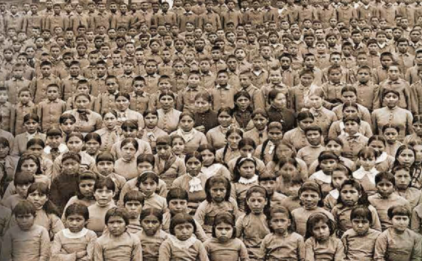
During World War II, nearly 120,000 Japanese-Americans (half of whom were children) were forced from their homes and put into internment camps. Let us be very clear here, America has the world’s largest prison population at 2.3 million, according to the Prison Policy Initiative – with 10,000 young people incarcerated in adult prisons. The foster care system, alone has over 400,000 children, according to a 2014 report from the Adoption and Foster Care Analysis and Reporting System; mostly Black and brown and poor.
Back to America and slavery- there was a debate about separating families, some argued that if they actually kept families together then maybe the slaves wouldn’t run away all of the time. Owners would even encourage marriage and keep them together. Frederick Douglass suggested that slaveowners purposefully separate children from their parents in order to blunt the development of affection between them. He argued that slavery was immoral on many grounds, and the destruction of families was one of them.
Black Fathers are Indeed Home

Fifty-six percent of African-American children were born in families in which the mother was not married to the biological father. About 4 million African-American children (36 percent) reside with both their parents. Historically, strong marriages and commitment to family life have been central features of African-American families, however in the last decade of the twentieth century, marriage rates have declined. Why is this? Experts on the African-American family claim that this decline is due to “shortage of marriageable African-American males and to the structure, social, and economic factors. I always wonder where they get their information from, though, and how accurate it is.
With a little research, I found this to be a bit off.
When racist narratives like the “absent Black father” myth go unchallenged in research, media, and pop culture, they ultimately serve as justification for punitive policies that harm Black families and ultimately all families. —-Jahdziah St. Julien

According to Dr. Mark Anthony Neal, a professor of African and African American Studies at Duke University who studies constructions of Black masculinity and gender, he says that the myth of the absent Black father is shaped by socio-economic realities.
The statistics that we see go as far back as the 1970s, but those are based on a time where there was a lot of financial pressure and unemployment was at an all time high. Also, some states created policies related to welfare and aid for dependent children which often penalized mothers if there was a man living in the home who was unemployed. Men who didn’t have a job and were living at home, didn’t have a particular “identity,” so a lot of men felt they couldn’t provide and often even fled because they could not provide. This wasn’t just in the Black families, but all families. Nowadays, we are okay with men being stay-at-home dads and even dads raising kids on their own. Times have definitely changed.
Dr. Neal also explained that this idea became a bigger issue through popular culture and in other different ways.
He uses the example TV series Julia, which was the first sitcom to feature a Black woman, in a lead role. Julia’s husband had been killed in Vietnam, and the whole premise of the series was dependent on her being a single Black mother. So, when that became the only representation of the Black family, the emerging narrative depicted Black fathers as missing— whether intentional or not.

Luckily, then came shows like Good Times where you had a father figure that was present. Even then, the character was killed and once again became a metaphor for how America saw Black families. Audiences were upset by this to the point where there was public criticism and protests as Black viewers didn’t want people to see Black families like this.
People that “research” Black families don’t really have a clear understanding of Black families the way they think they do. The myth of the Black father alone should tell us this right away.
However, fatherlessness is not defined by living arrangements, in fact 70 percent of Black children being fatherless is a myth. In fact, whether living in the same home or not, Black fathers are the most involved of all primary recorded race and ethnic groups.
Many fatherlessness statistics utilize marital and housing statuses as cornerstone metrics, resulting in highly inflated figures. These statistics do not account for the fact that men have died or passed away, couples may live together while unmarried, couples may be divorced, and, let’s not forget, that, due to the system of incarceration, men are not only separated from their families but often even prevented from staying in the homes with their families if the housing is federally provided.
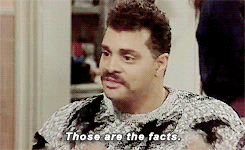
Now, where does it stop? By educating our people and others about this misrepresentation in reporting. Happy homes do become broken, but it doesn’t mean the family is entirely broken. It does not mean fathers or mothers are not still providing.
Erasing the Myth
Black households have a fraction of the wealth of white households, leaving Black families in a financial crisis more of the time. We all know that wealth allows an abundance of opportunities such as economic security. This wealth gap is no accident and is the result of centuries of federal and state policies that have systematically facilitated the deprivation of Black Americans. From slavery, to systematic oppression in the Jim Crow South, to today’s institutionalized racism—meaning various access to education, health care, jobs, housing, and criminal justice, the American government’s policies have created and maintained nothing but a difficult living situation for African Americans.
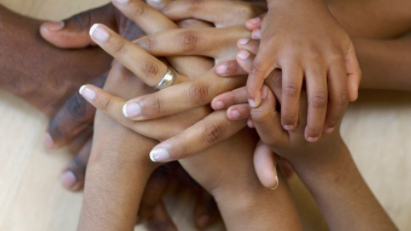
In fact, when Black folks were thriving, white American citizens despised this and would burn their properties and businesses to the ground. It isn’t news to us how many Black businesses, homes, churches etc, were constantly vandalized and destroyed by white supremacists.
This did not stop us. Our ancestors pushed past it and continued to work around the hardships they faced and so do we. Families are sticking together more than ever, working on their businesses, sharing responsibilities at home and fighting the false stereotype that was engrained in our society centuries ago. Black folks are even buying up towns and land to build again.
So far, about 19 families, most from the state of Georgia, U.S., have put their money together to buy nearly 97 acres of land in Wilkinson County, Georgia. The people that bought this land said it was their escape from the racism that still very much exists in Georgia.
“We’re not preaching separation and we’re not preaching segregation. No, we just want to be safe, that’s it,” Ball said. – ABC NEWS
Other great economic states that are thriving with Black families are Georgia, Washington D.C., and Texas topping the list of the richest Black communities in America. Atlanta, known as the Black capital of the country has witnessed a 14.7% increase in its all Black communities, and 20% of the African-American population are reported as self-employed.
